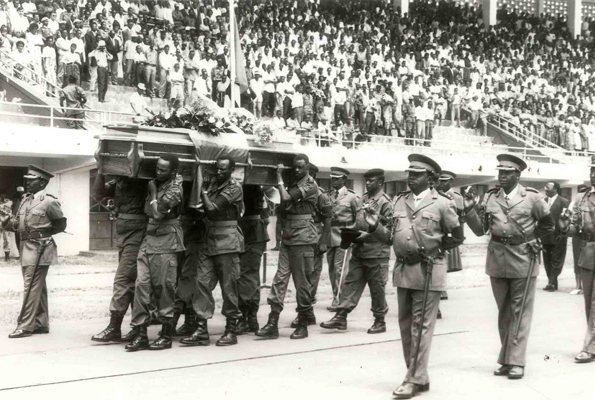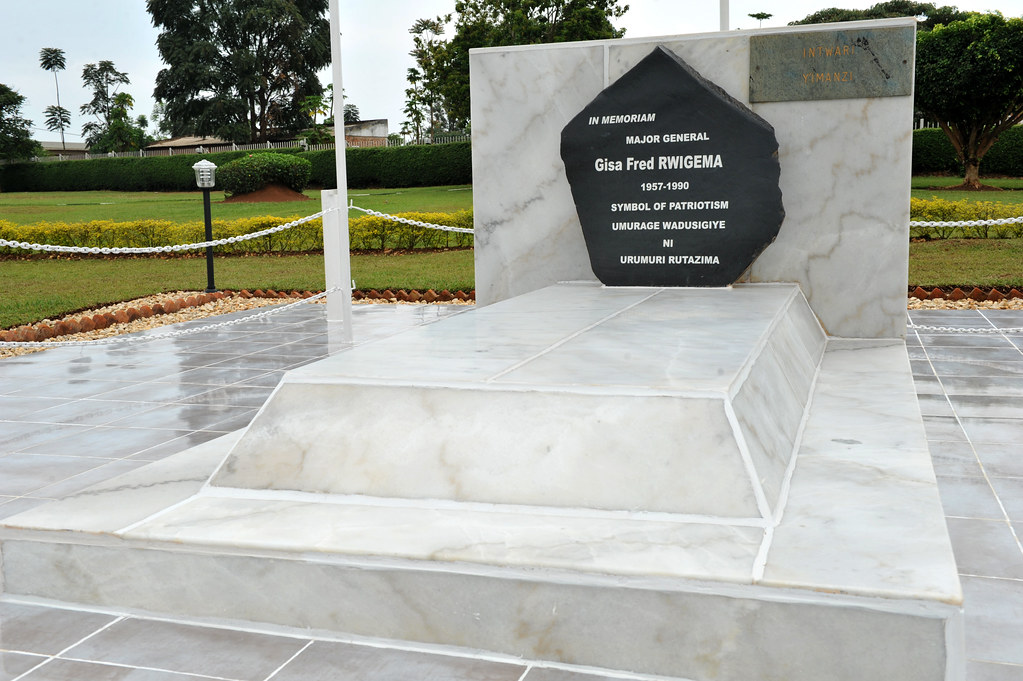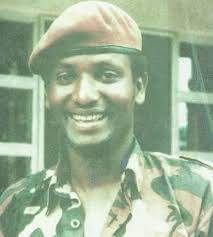BY FAUSTIN MUGABE
To be a soldier, Rupert Everett once said, “one needs that special gene, that extra something, that enables a person to jump into one on one combat, something, after all, that is unimaginable to most of us, as we are simply not brave enough.” Not many soldiers’ exploits have attracted immense interest as that of Fred Rwigyema. In part three of our series, ‘Fred Rwigyema: In Memoriam’ we explore why his death was kept secret.
For almost a fortnight, even his former commander-in-chief and president, Yoweri Museveni, was not informed about the tragic fate of his former deputy Defence minister.
President Museveni would only be informed upon touching down at Entebbe International Airport on October 10, 1990. The President had been away to New York, Washington, Britain and Denmark. The trip started on September 28, and ended on October 10, 1990, when he finally returned home.
In New York, Museveni addressed the United Nations General Assembly. Later, he flew to Washington DC, and onto England and other European capitals before returning home.
So why was the news of Maj Gen Rwigyema’s death kept away from both rank and file of his Rwanda Patriotic Front (RPF) fighters and commander-in-chief, Museveni?
Rwigyema’s word to Museveni
From the battle field, hours before his death, some few kilometers inside Rwanda, Maj Gen Rwigyema radioed President Museveni in New York. In the radio call, Rwigyema explained to President Museveni why they had decided to do what they did in the way he did it.
On page 279 of his book, Sowing the mustard seed, 2nd edition, President Museveni without giving any details writes: “…It must have been some hours after he [Maj Gen Rwigyema] had sent me a radio message, explaining why they had taken the action they did….” That was the last time the two Generals communicated.

But to date, several questions remain unanswered as to how Rwigyema, who was inside Rwanda, was able to directly reach out to President Museveni in New York on a military radio. Who could have given Rwigyema the line, frequency and codes of the President’s radio? Could the State House signal control team helped Rwigyema? If they did, under what circumstances?
However, what is recorded is that since 1986, when Museveni became president, the Banyarwanda (some passing off as Banyankole) had been strategically deployed to the Presidential International Communication System at State House.
This helped RPF operatives inside State House to monitor who was communicating with President Museveni on telephone from September 27, 1990, to September 31, 1990, as RPF fighters prepared to invade Rwanda.
This, the RPF 2nd in-command, Major Peter Baingana, confided in late Ugandan journalist Teddy Sezzi Cheeye in the second week of October 1990 when he visited the RPF camp in the Akagera National park in Rwanda.
Baingana also regretted that they had “taken” with them President Museveni’s communication equipment without his knowledge and consent.
On October 19, 1990, the defunct Weekly Topic published a picture of Baingana, Major Chris Bunyenyezi, Rwigyema’s chief escort Captain Vadest Kaitare, Lieutenant Faustin Kayumba Nyamwasa, and others seated together. The picture was taken by Cheeye.
When Cheeye asked Baingana where Rwigyema was, he answered that he was at the frontline commanding the war.
Capt Kaitare dies in 1992
Two other Ugandan newspapers reported the circumstances of Maj Gen Rwigyema’s death.
It is was widely then rumoured that Baingana and Major Bunyenyezi were immediately killed following the death of Rwigyema. But Cheeye’s story and picture disapproves that theory.
Major Okwir Rwaboni, who was one of the RPF fighters adds to the twist. He once told this reporter that Baingana and Major Bunyenyezi and their escorts were killed in an ambush around Gabiro as they headed out to commence a ceasefire and peace negotiations with the Kigali government in the third week of the war.
Muntu alerts Museveni on invasion
It was then left to Maj. Gen. Mugisha Muntu, the army Commander of the National Resistance Army (NRA), now Uganda Peoples’ Defence Forces (UPDF), to inform President Museveni of RPF deserting the NRA to start a liberation war against the Rwanda government-led President Major General Juvenal Habyarimana.
On page 279 of Sowing the Mustard Seed, Museveni writes: “While I was asleep in New York, at around 2am New York time, Mugisha Muntu, who was the army commander that time, rang me and told me in Runyankole: Bariya baagyenda – meaning that “the other ones have gone.”
I asked him, “who are those” After a little explanation, I understood who those “bariya” were”. That was, obviously, a big complication regionally and internationally,” President Museveni writes.
It is believed that news of Rwigyema’s death reached Kampala about October 4, 1990.
Rumours started spreading in Kampala but among the “who was who” in the “club” of Rwigyema’s friends and well-wishers.
It is worth noting that from October 1, 1990, the NRA soldiers staged roadblocks across the country, arresting Rwandan “deserters” who had been left behind partly because of lack of contact. Indeed, quite a number of RPF fighters who were demoralised by the death of Rwigyema deserted the war.

Why Rwigyema’s death was kept secret
From the frontline in Rwanda and in Kampala, there were fears that the announcement of the death of Maj Gen Rwigyema would excite jubilation and morale in Rwanda and demoralise the RPF fighters.
With that in mind, there was an attempt by top RPF commander to hush the news and not let junior fighters know about Rwigyema’s death, for weeks.
As for President Museveni, it was not until he returned from his overseas trip that the tragic news was broken.
On page 281, Museveni writes that: “…Rwigyema had long died but our people had not wanted to tell me. I do not know why. Even when they told me, they were of the view that I should keep it a secret. Their reasoning was that the enemy would jubilate if he knew that Rwigyema had died. Indeed, the Habyarimanas celebrated when I rejected their advice and announced that Rwigyema had been killed in action. That, however, did not save the Habyarimana regime.”
Rwigyema’s death has for 30 years now remained a mystery like deaths of most of the battle-hardened Generals on the continent of Africa.







